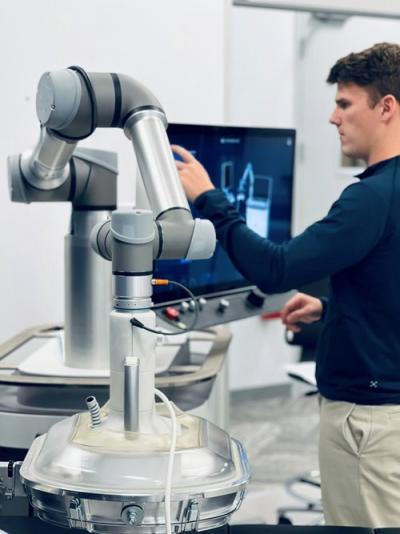With liver cancer diagnoses on the rise—and on track to keep rising, with an increase of more than 55% expected between 2020 and 2040—it makes sense that a startup developing a tumor-destroying platform would focus first on attacking malignant tissues in the liver.
That’s the case for HistoSonics’ Edison platform. The Minneapolis-based company has already completed clinical trials of the platform’s liver tissue-destroying abilities and has now raised $85 million to speed up its commercial launch and tack on even more indications.
Johnson & Johnson Innovation—the pharma and medtech giant’s venture arm—led the financing. Also joining in were Venture Investors, Lumira Ventures, Yonjin Venture and the State of Wisconsin Investment Board, among others, according to HistoSonics’ Tuesday announcement.
J&J also participated in the company’s previous two funding rounds. Its series C closed in April 2019 with $54 million, led by radiation hardware and software company Varian Medical Systems—which has since been acquired by Siemens Healthineers. A year later, a follow-up C-1 round was led by Yonjin Venture and brought in $40 million in mid-2020.
Alongside the VC infusion, the startup also doubled the size of its existing debt facility with Signature Bank, giving it access to another $15 million to fund its expansion plans. HistoSonics inked the initial $15 million loan agreement in 2020.

The company’s technology is based on histotripsy, a new approach to tissue destruction that can be guided by real-time imaging.
Unlike other ablation methods, HistoSonics’ is completely noninvasive: Instead, it directs focused ultrasound toward the tissue in question from outside the body. The pressure of the resulting sonic beams causes tiny gas bubbles to crop up among the targeted areas, destroying and liquifying nearby tissue as the bubbles rapidly expand and collapse.
Trial results shared in September showed that the Edison platform achieved technical success—defined as its ability to create an ablative zone around targeted tissue—in all of the eight patients who participated, each of whom had at least one end-stage, unresectable tumor in the liver. Additionally, none of the participants experienced any device-related adverse reactions in the first month after the procedure.
While announcing those results, HistoSonics said it was already working with the FDA to prepare another clinical trial that would focus on kidney tumors, and it’s also in the early stages of adapting the technology to destroy pancreatic tumors as well.
HistoSonics’ approach caught the FDA’s eye last year, when the agency awarded the Edison platform its breakthrough device designation.
That label prioritizes a devicemaker’s application for full FDA clearance when the time comes—and HistoSonics is already making use of it, as the company noted in this week’s update that it recently submitted the data from its liver cancer-focused clinical trial to the regulator for review. It’s now expecting to receive market authorization sometime next year.